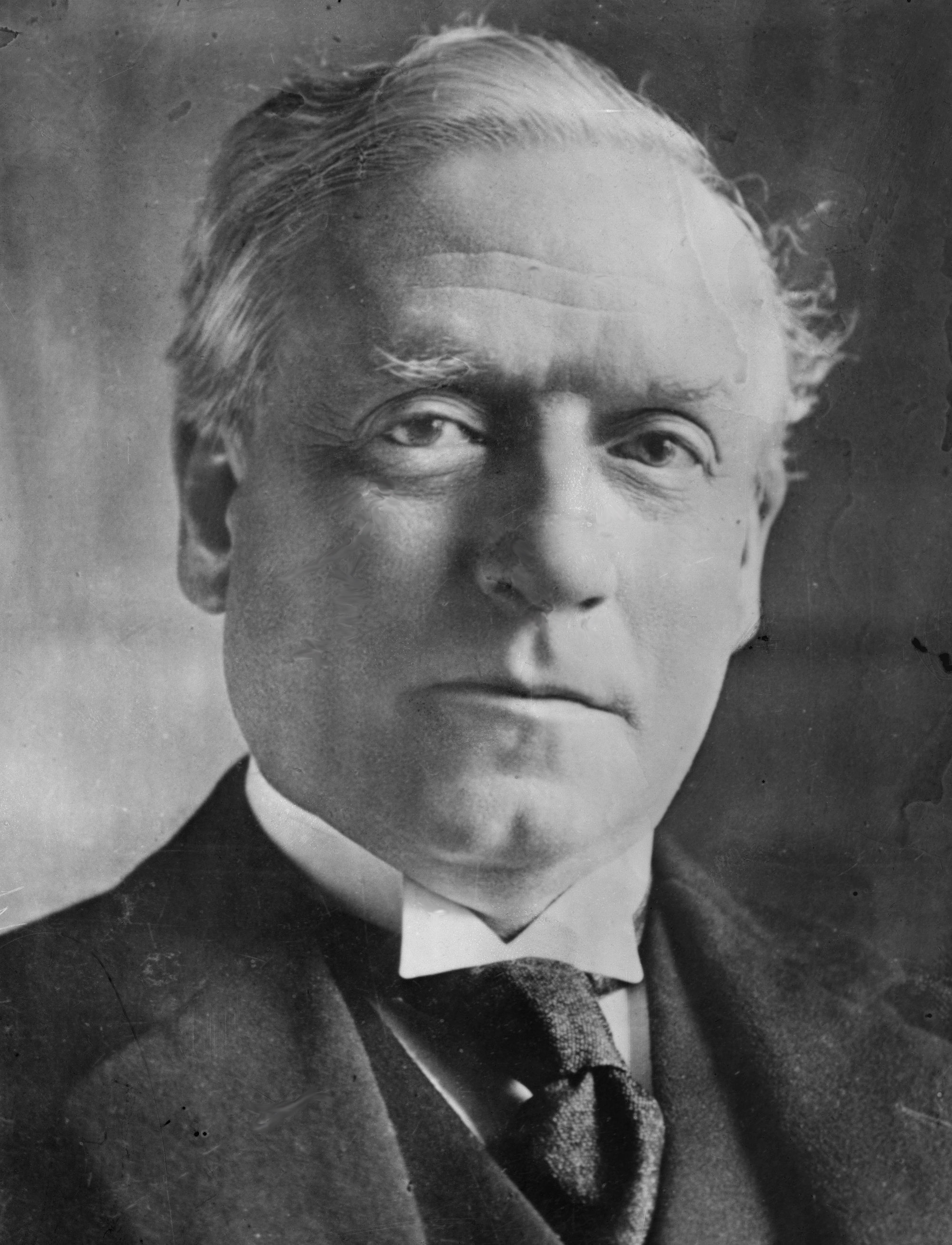Phrase used repeatedly in speeches in 1910; see [Jenkins, Roy, w:Roy Jenkins, Asquith, A Trial of Statesmanship I, 1964]
Famous H. H. Asquith Quotes
Address to the House of Commons on the sinking of the RMS Titanic; see [Asquith Voices Sympathy, http://query.nytimes.com/mem/archive-free/pdf?res=9A02E3DF153CE633A25754C1A9629C946396D6CF, 16 April 1912, The New York Times]
“We shall never sheathe the sword, which we have not lightly drawn”
Speech at Guildhall, 9 November 1914; see
Context: We shall never sheathe the sword, which we have not lightly drawn, until Belgium recovers in full measure all, and more than all, that she has sacrificed; until France is adequately secured against the menace of aggression; until the rights of the smaller nationalities of Europe are placed upon an unassailable foundation; and until the military domination of Prussia is wholly and finally destroyed.
Address to the House of Commons on the declaration of war with Germany; see [Asquith, 6 August 1914, http://www.firstworldwar.com/source/asquithspeechtoparliament.htm, British Prime Minister's Address to Parliament]
Speech in the House of Commons on the gun-running at Larne, Ireland (27 April 1914), quoted in The Times (28 April 1914), p. 8
Prime Minister
Jenkins R, Mr. Balfour s Poodle, p.11
Undated
H. H. Asquith Quotes about laws
Speech in Paisley (6 February 1920), quoted in Speeches by The Earl of Oxford and Asquith, K.G. (London: Hutchinson & Co., 1927), p. 266
Later life
Speech https://hansard.parliament.uk/commons/1916-12-19/debates/8572103d-700a-487a-8dd1-c0a99679cc6d/PrimeMinisterSStatement in the House of Commons (19 December 1916)
Later life
Speech https://api.parliament.uk/historic-hansard/commons/1915/mar/01/success-of-allies-assured#column_600 in the House of Commons (1 March 1915)
Prime Minister
H. H. Asquith Quotes
Speech in the Euston Theatre, London (19 February 1921), quoted in Speeches by The Earl of Oxford and Asquith, K.G. (London: Hutchinson & Co., 1927), p. 289
Later life
Speech in Paisley (6 February 1920), quoted in Speeches by The Earl of Oxford and Asquith, K.G. (London: Hutchinson & Co., 1927), p. 265
Later life
Speech in Paisley (28 January 1920), quoted in Speeches by The Earl of Oxford and Asquith, K.G. (London: Hutchinson & Co., 1927), p. 245
Later life
Speech in the House of Commons (26 July 1917), quoted in The Times (27 July 1917), p. 10
Later life
Speech at the Guildhall, London (9 November 1914), see [Swatridge, Colin, Oxford Guide to Effective Argument and Critical Thinking, https://books.google.com/books?id=fGbrAwAAQBAJ&pg=PT51, 2014, Oxford University Press, 978-0-19-165180-9, 51]
Prime Minister
Letter to John Strachey (9 May 1908), quoted in H. C. G. Matthew, The Liberal Imperialists: The Ideas and Politics of a Post-Gladstonian Élite (Oxford: Oxford University Press, 1973), p. 257
Prime Minister
“Wonderful news to-day, and it is only a question of time when we shall sweep this country.”
Remark to Margot Asquith (16 May 1903) after reading in the The Times Joseph Chamberlain's speech advocating protectionism, quoted in The Autobiography of Margot Asquith, Volume Two (London: Penguin, 1936), p. 46
Opposition MP
Speech in Leeds (23 November 1900), quoted in The Times (24 November 1900), p. 8
Opposition MP
Speech in Darwen, Lancashire (27 January 1899), quoted in The Times (28 January 1899), p. 8
Opposition MP
Speech in Hull (22 January 1895), quoted in The Times (23 January 1895), p. 6
Home Secretary
Remarks to a dinner given to Asquith in the House of Commons by MPs who had graduated from Balliol College (22 July 1908), quoted in The Times (23 July 1908), p. 12
Prime Minister
‘The invasion of Ulster’, The Spectator (29 September 1883), p. 6
‘The English Extreme Left’, The Spectator (12 August 1876), p. 8
“No, I will not. We shall wait and see.”
Answer to an elector who asked him if he would say what he would do if the House of Lords rejected a Bill limiting their veto, in East Fife (20 January 1910), quoted in The Times (21 January 1910), p. 10
Phrase used repeatedly in speeches in 1910; see [Jenkins, Roy, w:Roy Jenkins, Asquith, A Trial of Statesmanship I, 1964]
Prime Minister
Speech to the National Liberal Club (11 December 1908), quoted in The Times (12 December 1908), p. 10
Prime Minister
Budget speech https://api.parliament.uk/historic-hansard/commons/1906/apr/30/expenditure in the House of Commons (30 April 1906)
Chancellor of the Exchequer
Speech in the Liverpool Street Station Hotel, London (20 June 1901) on the Boer War, quoted in Speeches by The Earl of Oxford and Asquith, K.G. (London: Hutchinson & Co., 1927), p. 40
Opposition MP
